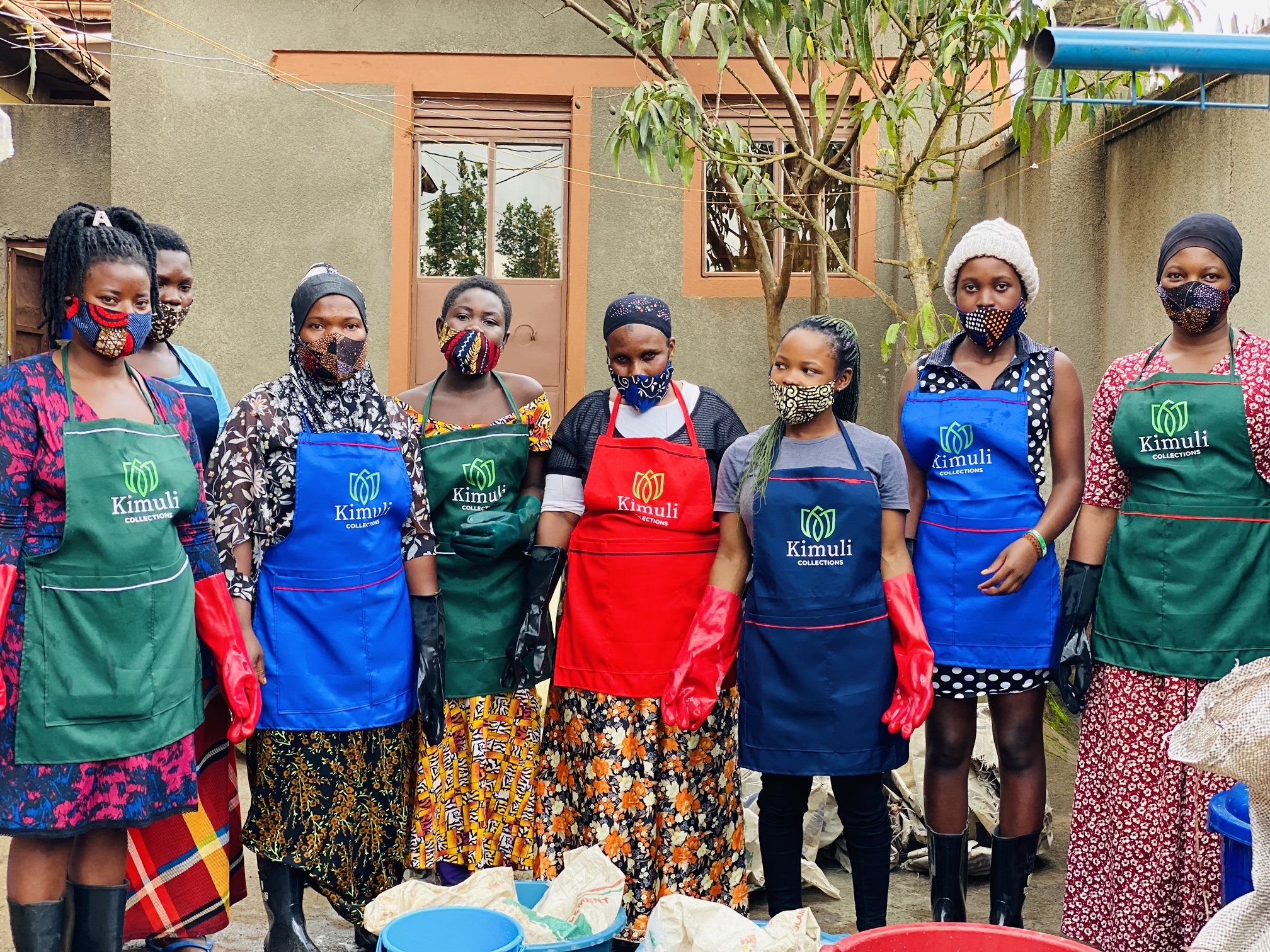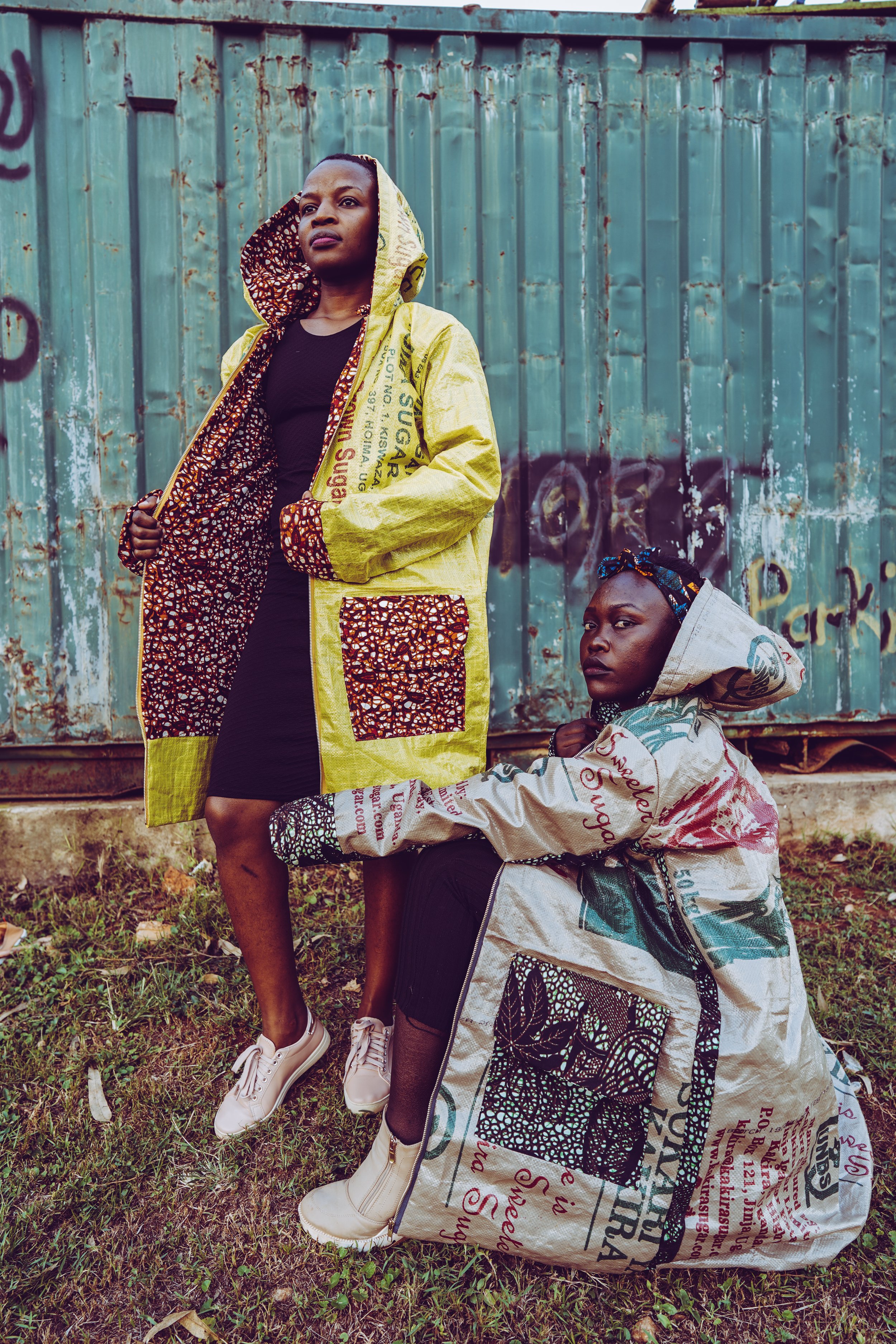
Kimuli Collections: Employing Disabled Women Through Sustainable Banana Fiber Fashion
Introduction
Changemakers: Juliet Namujju and the Kimuli Collections team.
Project Overview: Kimuli Collections aims to combat the plastic waste crisis, address the issues of fast fashion, and promote disability inclusivity by creating fashion and accessories from sustainable banana fibers.
Target Community: Marginalized youth and individuals with disabilities in rural Uganda.
Context: Growing up in poverty with limited resources, Juliet Namujju was inspired by her grandmother to use waste materials creatively. This experience led to the establishment of Kimuli Collections.
Significance and Urgency: The project addresses the urgent need for environmental conservation and social inclusion, particularly for people with disabilities, by utilizing banana fibers, a more sustainable material than plastic, and challenging the detrimental impacts of fast fashion.
Background:
Sustainable Material Usage: The need for alternatives to plastic in fashion to reduce environmental impact.
Fast Fashion: The detrimental environmental and social effects of fast fashion, including waste, pollution, and unethical labor practices.
Disability Inclusivity: Societal attitudes towards disability and the lack of employment opportunities for individuals with disabilities.
Economic Empowerment: Limited access to sustainable income-generating activities for marginalized communities.
Statistics/Testimonials: The project highlights Juliet Namujju's personal journey and the transformative impact of using sustainable banana fibers.
Specific Issues:
Solution/ Project Description:
Proposed Solution: Creating fashion products from banana fibers while training individuals with disabilities.
Project Activities:
Raise funds to support project initiatives.
Educate communities about sustainable materials, environmental conservation, and the impacts of fast fashion.
Conduct sensitization programs in schools and children's camps.
Develop and sell garments and accessories made from banana fibers.
Track the usage of banana fibers and monitor sales growth.
Train individuals with disabilities to create banana fiber products and become trainers themselves.
Unique Aspects: Combining the use of banana fibers with social inclusion and economic empowerment, while actively addressing the negative impacts of fast fashion.
Contribution to Success: Using banana fibers as a sustainable material ensures a holistic approach to addressing environmental and social issues.
Innovative Approaches:
Sales Growth: Aim to sell 20,000 banana fiber products in 2025 with a projected 70% annual increase.
Material Usage: Track the monthly usage of banana fibers in product creation.
Training Impact: Train 200 individuals in the first year, with a goal of 4,000 trainees across East Africa within five years.
Tracking and Reporting: Regular monitoring of sales, material usage, and training outcomes.
Key Performance Indicators (KPIs):
Tools and Techniques: Baseline assessments, follow-up surveys, impact evaluations, and regular progress reports.
Plans for Assessments: Conduct baseline assessments before project implementation and follow-up assessments periodically.
Evaluation Methods:
Long-term Strategy:
Sustainability Plans: Engage community stakeholders, secure additional funding, and foster community ownership.
Scaling the Project: Expand successful interventions to other communities and regions.
Steps for Long-term Viability:
Build local capacity through training and education.
Establish partnerships with local authorities and NGOs.
Develop community-led monitoring and evaluation systems.
Continued Positive Outcomes: Ensure ongoing support and resources for households to maintain and improve their livelihoods.
Summary:
Enhance sustainable livelihoods of disabled women and overall well-being in rural communities.
Combat the environmental and social impacts of fast fashion.
Importance and Impact: This project has the potential to create lasting positive change by providing relevant, effective, and sustainable solutions.
Call to Action:
Get Involved: Support the Kimuli Collections project by contributing resources, expertise, or funding. Help us empower rural households to achieve sustainable livelihoods through banana fiber fashion.
Contact Information:
Email: hello@sustainableaccessfoundation.org









Make a donation
Join us in supporting innovative projects like the Black Soldier Fly BioTech Initiative. Your contributions can help empower more communities and create sustainable solutions


